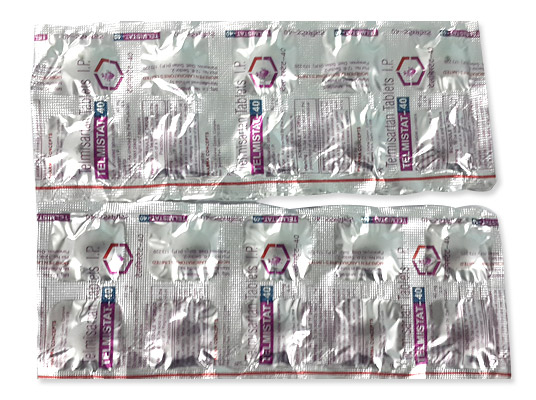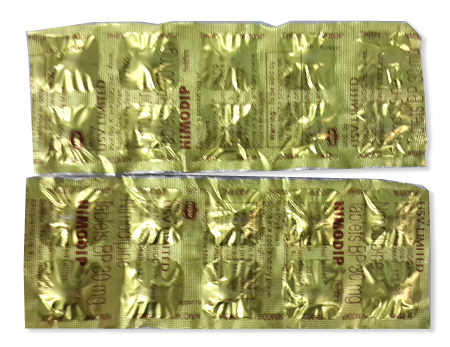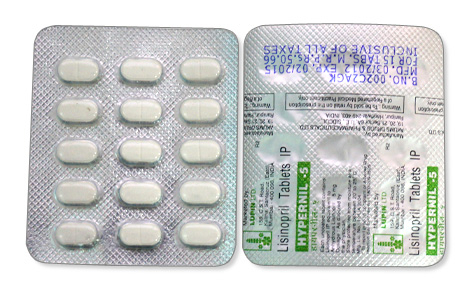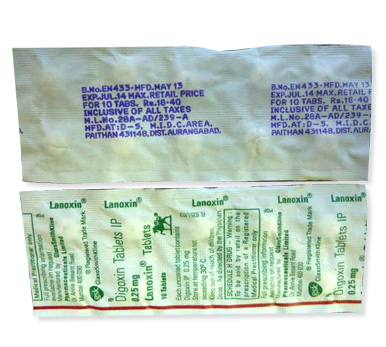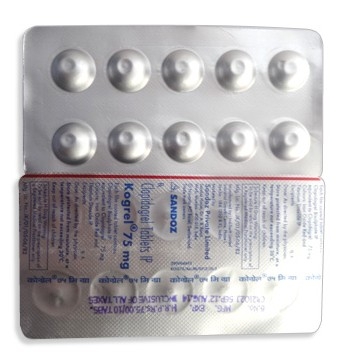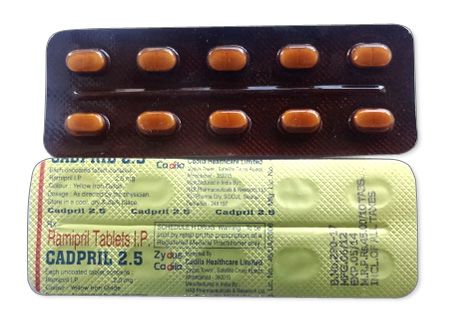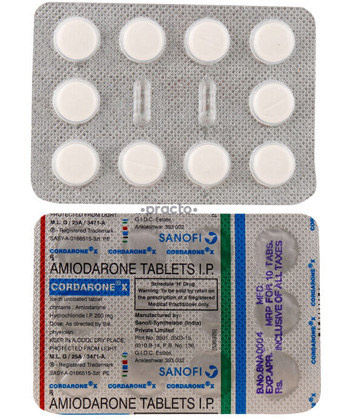
Cordarone
- Cordarone is available by prescription globally and can be purchased in pharmacies with a valid prescription; it comes as 200 mg tablets or injectable vials.
- Cordarone is used to treat life-threatening recurrent ventricular arrhythmias resistant to other treatments, acting as a Class III antiarrhythmic by blocking potassium channels.
- The usual dosage starts with an initial loading dose of 800–1600 mg/day for 1–3 weeks, followed by a maintenance dose of 400 mg/day once stabilized.
- This medication is administered orally (tablets) or intravenously (injectable solution).
- Intravenous administration provides effects within minutes to hours, while oral forms require days to weeks to reach therapeutic levels due to slow absorption.
- Its action is exceptionally prolonged, with an elimination half-life of ~53 days and effects lasting weeks even after discontinuation.
- Avoid alcohol consumption during treatment, as it may enhance adverse effects like dizziness, low blood pressure, or arrhythmia risks.
- Common side effects include nausea, vomiting, slow heart rate (bradycardia), low blood pressure, taste changes, and heightened skin sensitivity to sunlight.
- Would you like to try Cordarone without a prescription? (Note: Cordarone requires a prescription in all markets.)
Trackable delivery
5-9 days
Payment method
Visa, MasterCard, Discovery, Bitcoin, Ethereum
Free delivery (by Standard Airmail) on orders over A$306
Related Products:
Description of Cordarone
| Active Ingredient | Amiodarone |
| Packaging Type | tablet |
| Quantity per Package | 30-180 |
| Price of Cordarone | From AUD 3,76 per tablet |
| Dosage | 100mg-200mg |
| Sale of Cordarone | without prescription |
Questions and Answers about Cordarone
I don't have a prescription. Can I buy Cordarone at your pharmacy?
In our online pharmacy, you can purchase Cordarone without a prescription. We guarantee a hassle-free shopping experience by providing access to high-quality medications in an easy and confidential manner.Is it possible that Cordarone doesn't work?
Cordarone may not be effective for some individuals, as medication responses can vary from person to person.Can anyone see the contents of my order
the contents of your order for Cordarone are strictly confidential. All orders are securely packaged without any external markings that could reveal the contents, ensuring absolute discretion. We prioritize our customers' privacy, and no third party will be informed about the details of your Cordarone order.What is Cordarone and how does it work?
Cordarone (amiodarone) is an antiarrhythmic medication used to treat irregular heartbeats. It works by regulating the electrical activity of the heart muscle, helping to restore a normal heart rhythm and prevent potentially life-threatening arrhythmias.Is it legal to use Cordarone in Australia?
Cordarone (amiodarone) is a prescription medication that is legally available in Australia for treating certain heart rhythm disorders when prescribed by a doctor.Mechanism of action of Cordarone
Cordarone (amiodarone) works by blocking potassium channels in the heart, prolonging the refractory period and preventing abnormal heart rhythms.How long does it take for Cordarone to work?
Cordarone (amiodarone) typically takes a few weeks to reach its full antiarrhythmic effect, but some patients may experience benefits within a few days.How long does the effect of Cordarone last?
The effects of Cordarone (amiodarone) typically last for several weeks or months after discontinuation due to its long half-life and slow elimination from the body.What are the risks of misuse of Cordarone?
Cordarone may cause serious side effects such as lung damage, vision problems, and thyroid disorders. Careful monitoring is required during treatment to minimize risks.How long does Cordarone stay in the body?
Cordarone (amiodarone) has a very long half-life, with the medication staying in the body for approximately 6 weeks after discontinuation of treatment.Will Cordarone show up in a drug test?
Cordarone (amiodarone) can potentially show up on certain drug tests, as it may cross-react with some testing methods.Compatibility of Cordarone with other medications
Cordarone (amiodarone) may interact with:- Digoxin- Warfarin- Phenytoin- Theophylline- CyclosporineConsult our support team for comprehensive details on drug interactions.Can you drink alcohol while taking Cordarone?
While moderate alcohol consumption is generally not prohibited when taking Cordarone (Amiodarone), it is always best to consult your healthcare provider. They can offer personalized advice based on your overall health condition, the dosage of the medication, and potential interaction risks.Recommended storage method for Cordarone
- Store Cordarone at room temperature between 20°C and 25°C (68°F and 77°F).
- Keep the medicine in its original container, tightly closed.
- Protect from light, moisture, and heat.
- Do not freeze Cordarone.
How should Cordarone be taken and in what dosage?
Cordarone should be taken orally, once a day. The usual maintenance dose is 200-400 mg per day. It should be taken with a glass of water and can be taken with or without food. Here are the dosage instructions:
| Condition | Dosage |
|---|---|
| Ventricular Arrhythmias | 800-1600 mg/day in divided doses |
| Atrial Fibrillation | 600-800 mg/day in divided doses |
| Maintenance Dose | 200-400 mg once daily |
Can Cordarone be taken for an extended period?
Cordarone (amiodarone) can be taken for an extended period under medical supervision, but long-term use may increase the risk of side effects, so regular monitoring is recommended.Overdose of Cordarone and what to do in case of an overdose
In the rare event of an overdose of Cordarone, it is generally not considered potentially fatal. However, it is important to seek appropriate medical advice. If you suspect an overdose, you should:- Immediately contact your doctor for professional advice.
- Carefully follow your healthcare provider's instructions.
- Avoid taking extra doses without consulting a doctor.
Comparison of Cordarone with other analogs
Amiodarone (Cordarone) is an antiarrhythmic medication used to treat various types of irregular heartbeats. It is more effective and has a broader spectrum of action compared to other antiarrhythmic drugs like digoxin, verapamil, lisinopril, metoprolol, atenolol, carvedilol, and isosorbide dinitrate. However, amiodarone can have significant side effects, particularly on the thyroid and lungs, which necessitates close monitoring during treatment.What you should know before taking Cordarone
Cordarone requires monitoring for potential side effects, including lung, liver, and thyroid problems. It may interact with other medications, so consult your doctor before starting treatment.Contraindications for the use of Cordarone
Cordarone (amiodarone) should not be used in patients with known hypersensitivity to the drug, severe liver or thyroid dysfunction, and certain heart rhythm disorders. Contraindications include bradycardia, AV block, and sinus node disease without a pacemaker. Use with caution in pregnancy and breastfeeding. Consult a healthcare professional for a comprehensive list of contraindications and potential interactions.Possible side effects of Cordarone
Cordarone (amiodarone) can cause various side effects. The most common ones include:- Nausea, vomiting, or loss of appetite
- Fatigue or weakness
- Vision problems or sensitivity to light
- Skin rash or discoloration
- Nerve pain or numbness
- Thyroid problems
Lifestyle: diet and physical activity
Cordarone may affect physical activity and require dietary modifications; consult your healthcare provider for personalized guidance to maintain a healthy lifestyle while taking this medication.How does mental state affect the effectiveness of Cordarone
Mental state can influence the effectiveness of Cordarone (amiodarone). Anxiety, depression, or stress may impact medication adherence and treatment outcomes. A positive mindset and good mental health support optimal treatment response.When should one consult a doctor?
When using Cordarone, it's advisable to consult a doctor if you experience any side effects, such as nausea, vomiting, vision problems, or breathing difficulties. Regular monitoring by a healthcare professional is important to ensure the medication is working effectively and to adjust the dosage if needed. Additionally, inform your doctor about any other medications you're taking to avoid potential interactions.Where can I find the lowest price for Cordarone?
In our pharmacy, Cordarone is available at the most competitive price, ensuring you get a better price-quality ratio compared to other providers. While other stores offer quality, our exclusive deals ensure you get premium medications without overpaying. Shop with us and experience the perfect combination of affordability and reliable quality.In which cities can Cordarone be delivered?
Cordarone is available for delivery in the following cities in Australia:| City | Region | Delivery Time |
|---|---|---|
| Sydney | New South Wales | 5-7 days |
| Melbourne | Victoria | 5-7 days |
| Brisbane | Queensland | 5-9 days |
| Perth | Western Australia | 5-9 days |
| Adelaide | South Australia | 5-9 days |
| Gold Coast | Queensland | 5-9 days |
| Canberra | Australian Capital Territory | 5-9 days |
| Newcastle | New South Wales | 5-9 days |
| Wollongong | New South Wales | 5-9 days |
| Geelong | Victoria | 5-9 days |
| Hobart | Tasmania | 5-9 days |
| Townsville | Queensland | 5-9 days |
| Cairns | Queensland | 5-9 days |
| Darwin | Northern Territory | 5-9 days |
| Toowoomba | Queensland | 5-9 days |
| Ballarat | Victoria | 5-9 days |
| Bendigo | Victoria | 5-9 days |
| Albury | New South Wales | 5-9 days |
| Launceston | Tasmania | 5-9 days |

